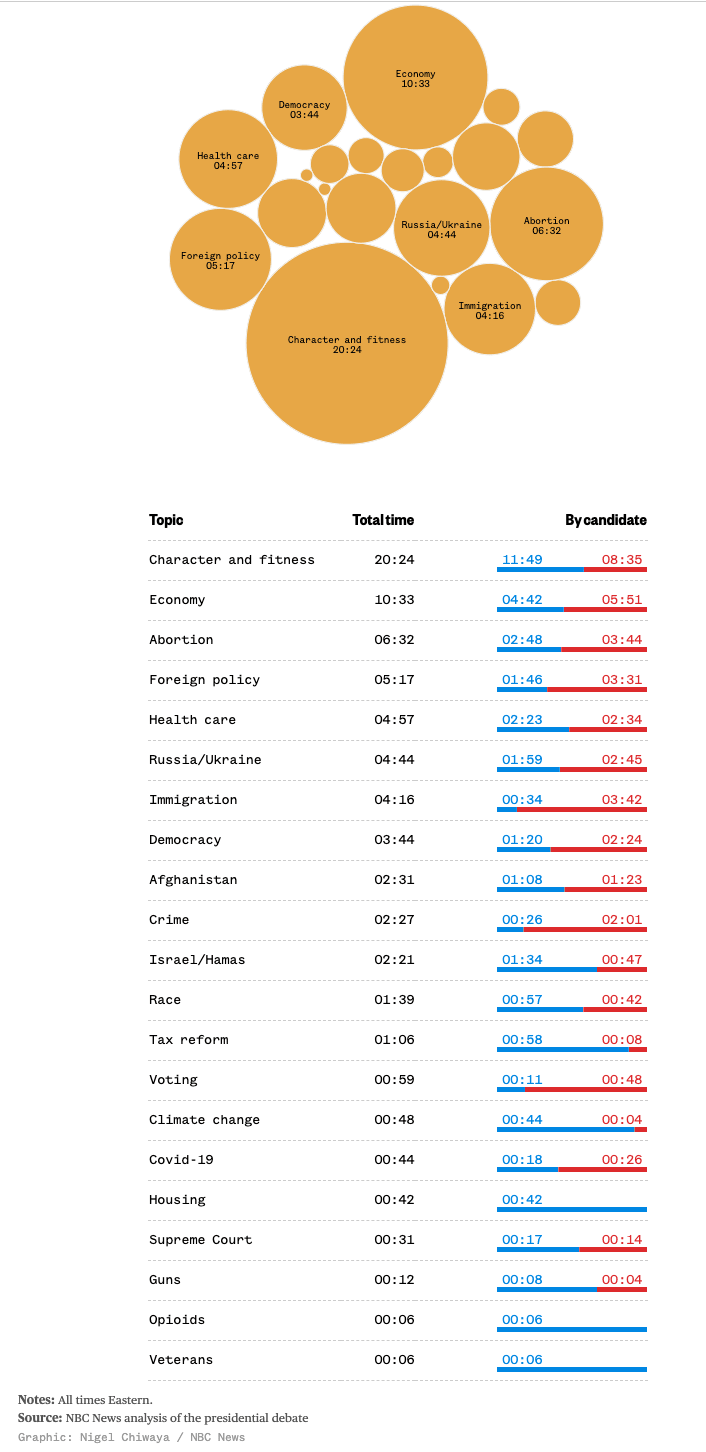
Long stories short, here’s the top six news items of note in climate news for Aotearoa-NZ this week, and a discussion above between Bernard Hickey and The Kākā’s climate correspondent Cathrine Dyer:
A Trump victory in the November US elections would doom global progress on climate change and reverberate through the geological record for a million years, according to Bill McKibben.
Up to 68% of Australia’s tourism assets sit in a major climate risk category, according to insurance industry experts, putting as many as 30% of the industry’s 620,000 jobs and all 31 of the country’s busiest airports in jeopardy.
Despite pledges from 150 countries to reduce methane emissions by 30% this decade, a recent report shows that they have been accelerating for the past five years, putting the world on a path to exceed 3˚C by 2100.
A new study shows that climate change caused 10% more rain to fall during Cyclone Gabrielle, with scientists suggesting that it should become a benchmark informing how we respond to future disasters. However, there has been an ‘abject failure’ to learn lessons from the storm, with just one person at NEMA (the National Emergency Management Agency) dedicated to finding short-term fixes for the disaster coordination system that failed during Cyclone Gabrielle.
Leading climate scientist Zeke Hausfather admits that some unknown ‘combination of forcings or changes in feedbacks’ is responsible for the recent acceleration in heating, reflecting a community that is confounded by the pace of events.
The chart of the week shows how much time was dedicated to climate change in Tuesday evening’s Presidential debate – just 48 seconds.
(See more detail and analysis below, and in the video and podcast above. Cathrine Dyer’s journalism on climate and the environment is available free to all paying and non-paying subscribers to The Kākā and the public. It is made possible by subscribers signing up to the paid tier to ensure this sort of public interest journalism is fully available in public to read, listen to and share. Cathrine wrote the wrap. Bernard edited it. Lynn copy-edited and illustrated it.)
1. A Trump victory would doom global climate progress
The first debate between Donald Trump and Kamala Harris paid little attention to climate change. Nevertheless, the consequences of a Trump win has profound global climate implications, as Bill McKibben points out in The Guardian this week. He warns that a Trump win in US elections this November would reverberate through the geological record for a million years to come.
He quotes Donald Trump’s opinions on climate change at length, calling them gibberish, and suggesting that the best translation of that gibberish into actual policy is provided by Project 2025. Trump’s past actions as President are nowhere more consistent with Project 2025 plans than in his support for oil, gas and coal and his disparaging of wind and solar energy. Promised action includes:
“.. ending the effort to spur EV production in Detroit; ending support for renewables (Trump has promised to “kill wind”, whatever that means); and reversing a crucial 2009 finding from the EPA that carbon dioxide causes harm, a position that undergirds much of the federal effort to rein in climate pollution. He has also – chef’s kiss – promised to close down the National Oceanic and Atmospheric Administration, otherwise known as the people who measure how much the temperature is rising. That’s on the grounds that those measurements are “one of the main drivers of the climate change alarm industry”.”
Source: The Guardian
2. Majority of Australia’s key tourism sites at high risk
Up to 68% of Australian tourism assets sit in a major risk category under a “middle-of-the-road” scenario for climate change where the planet warms 2˚C by 2041-2060, according to a new report from insurance group Zurich and economic analysts Mandala.
The report used data to analyse the tourism sector’s vulnerability to nine “climate perils” including wind, flood, heat, cold, storm, drought, bushfire, hail and rain. According to the report:
“Australia’s tourism industry plays an important role in the nation’s economy, contributing more than $170 billion in annual expenditure and over 620,000 jobs.
In terms of economic impact, around 30 per cent (up to 176,000) of these jobs nationally could be jeopardised – 65 per cent of which are outside our capital cities – in the event of a disaster scenario similar to that experienced following the bushfires of 2019-20.”
Source: Zurich Insurance
The 31 busiest Australian airports all fell into the highest climate risk category because of their location and exposure to storms and wind. Queensland had more tourist sites in the highest of five risk categories than any other state at 52%. Some of the highest risk sites around the country included Uluru, Kakadu, Sydney’s royal botanic gardens and Bondi Beach. Wine growing regions, rainforests, national parks and scenic roads and rail lines were in the highest risk categories while museums, galleries and stadiums were lower risk.
“What struck us was just the sheer size of the problem,” said Adam Triggs, an economics expert and partner at Mandala. “As we looked at the different sites around the country, it became clear how systemic this risk is.”
Source: The Guardian
3. Record methane emissions put the world on-track for 3˚C
New research shows that methane emissions have grown faster than ever over the past five years, despite more than 150 nations pledging to slash them by 30% this decade.
The study shows that over two-thirds of methane emissions arise from human activity including fossil fuel use, agriculture and waste. The trend “cannot continue if we are to maintain a habitable climate,” the researchers write.
“Atmospheric concentrations of methane are now more than 2.6 times higher than in pre-industrial times – the highest they’ve been in at least 800,000 years. Methane emission rates continue to rise along the most extreme trajectory used in emission scenarios by the world’s leading climate scientists.
The current path leads to global warming above 3 degrees Celsius or 5 degrees Fahrenheit by the end of this century. “Right now, the goals of the Global Methane Pledge seem as distant as a desert oasis,” said Jackson, who is the Michelle and Kevin Douglas Provostial Professor in the Stanford Doerr School of Sustainability and lead author of the Environmental Research Letters paper. “We all hope they aren’t a mirage.” “
Source: Stanford Report
4. “Abject failure” to learn lessons from Cyclone Gabrielle
Researchers have shown that 10% more rain fell during Cyclone Gabrielle as a result of climate change.
The research, led by Niwa scientist Dr Daíthí Stone, was the result of a collaboration with scientists from MetService, Bodeker Scientific, the University of Waikato and the Norwegian Meteorological Institute. The results are consistent with findings from other similar studies looking at tropical cyclones around the world.
"Cyclone Gabrielle resembled some of the worst-case scenarios that we could have predicted for the region," Stone said.
"We therefore wanted to see how much climate change influenced its power, so we compared the actual MetService forecast of the storm against forecasts under conditions representative of a climate without human interference. Our study found a significant increase in rainfall under human-influenced conditions."
She said the atmosphere - warmed by human activity following the Industrial Revolution - held more water, which fuelled storm systems and increased wind speeds.” RNZ News
Stone added that Cyclone Gabrielle must become the benchmark for how we prepare for any future natural disaster.
However, another RNZ report reveals that the National Emergency Management Agency (NEMA) has just one person dedicated to finding short-term fixes for the disaster coordination system that failed during Cyclone Gabrielle.
“NEMA and the country are currently relying on an old system with half its parts working - and it largely failed in the cyclone more than 18 months ago.
Five of the 10 functions do not work, and it offers no effective "situation reporting, action planning and hazard assessments".
Tairāwhiti - driven by four years of storms that were capped by Gabrielle - has not waited, and brought in its own award-winning system.
"For Tairāwhiti ratepayers, it hasn't cost a dollar," said local Civil Defence and Emergency Management group manager Ben Green, who helped set up and run it.
It was already "battled-tested system" when Gabrielle hit - and now was 200-300 percent better on top of that, Green said.
But lessons were not being learned elsewhere, said ex-mayor of Christchurch and ex- Labour Cabinet Minister Lianne Dalziel, demonstrating "our abject failure to learn the lessons of our experiences and the experiences of others".”
5.“Some combination of forcings” driving higher temps
The state of play in climate science was summarised by Zeke Hausfather on The Climate Brink substack this week.
“Many of us hoped that if 2024 returned to a more predictable post-El-Nino regime it would provide evidence that what happened in the second half of 2023 was a blip – some short lived internal variability that drove a spike in global temperatures but did not persist.
However, with temperatures remaining elevated into September 2024, its looking increasingly less likely that last year’s elevated temperatures were a mostly transient phenomenon. Rather, some combination of forcings or changes in feedbacks may be driving higher global temperatures going forward.”
And that’s where the article ended. That is an indication that the climate science community is in a state of disarray, with no clear consensus explanation for what has happened to drive additional warming since late 2023.
6. Chart of the Week: 48 seconds later...
NBC News tracked the subjects that were discussed during the Presidential Debate on Tuesday evening US time, finding climate change rated just 48 seconds of debate time – not even enough to earn its own label on the graphic...
And in other news …
Pacific Island countries have submitted a proposal to the International Criminal Court suggesting ‘ecocide’ be recognised as a crime alongside genocide.
Scientists have discovered that grey reef sharks are abandoning their coral reef homes as the oceans heat up, further imperilling these struggling ecosystems.
A study of the influence of fossil fuel interests on higher education has found that “universities are an established yet under-researched vehicle of climate obstruction by the fossil fuel industry, and that universities' lack of transparency about their partnerships with this industry poses a challenge to empirical research.”
Chinese authorities have denied that their cloud seeding activity, designed to break a long-running heatwave in the megacity of Chongqing, were responsible for an unexpected windstorm that rained underwear onto the streets below from balconies containing peoples’ laundry.
Ka kite ano
Bernard and Cathrine


















Share this post